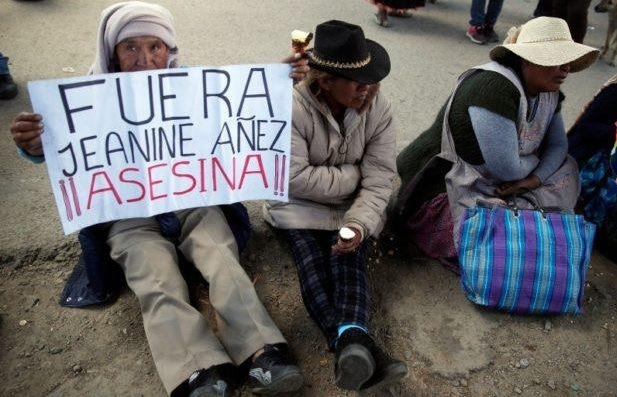RIO DE JANEIRO, BRAZIL – The Human Rights Watch (HRW), an international human rights organization, has issued an urgent warning against restrictions on freedom of the press and freedom of speech in Bolivia as a result of a decree to curb COVID-19.

The decree was issued on March 25th by the de facto government under the self-appointed interim president Jeanine Áñez.
In addition to extending the quarantine until April 15th, it decrees that from now on “any individual who incites a violation of this decree, spreads false information or contributes to the insecurity of the population will be prosecuted for crimes against public health”. Imprisonment of up to ten years is threatened.
Meanwhile, the Minister of Health, Aníbal Cruz, surprisingly announced his resignation last Tuesday after only five months in office.
The decree fails to elaborate on what specific actions or statements are to be construed as “false information” or “insecurity of the population”.
These general wordings lacking clear legal definitions could easily be misused to restrict freedom of opinion and freedom of the press, the HRW cautions.
“The Bolivian government seems to be using the pandemic as an opportunity. This approach violates the right to freedom of expression,” says José Miguel Vivanco, head of HRW America.
“Crimes against public health” are punishable under the Bolivian criminal code with prison sentences of one to ten years. These include “spreading of serious diseases”, “violation of hygiene regulations” and “actions that affect the health of other people in any way”.
Consequently, the HRW calls for the immediate repeal of the decree and appeals to the Ombudsman’s Office, legislators, and regional governments to lodge a petition to review its constitutionality.
Several members of the government have already threatened members of the opposition with criminal prosecution. Interior Minister Arturo Murillo, for one, declared that he had instructed the armed forces, the police, and his staff to carry out checks on the Internet.
In this regard, he particularly warned Luis Acre, the presidential candidate of the Movement for Socialism (MAS), not to “spread false information”. Acre had last been ahead in the polls in the run-up to the elections originally planned for May. These are now to take place between June 7th and September 6th.
Meanwhile, the surprise resignation of the Minister of Health, Aníbal Cruz, was announced last week. He mentioned personal reasons for his decision, which he failed to specify. Cruz had taken office on November 14th last year.
Áñez then appointed Marcelo Navajas as his successor, a surgeon and specialist in pneumology and thoracic surgery.

